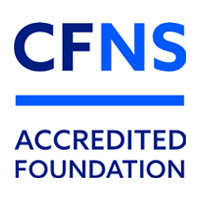Dare and Hyde counties move to build more teacher housing units

Rendering of proposed 10-unit teacher apartment building on Ocracoke. (Florez Design Studios)
By Kip Tabb
As Outer Banks communities face a critical shortage of housing for workers, two projects moving forward with an assist from the Outer Banks Community Foundation will help Hyde and Dare County school systems hire and retain teachers.
On Ocracoke, the Hyde County Education Foundation (HCEF) has plans to renovate a former daycare center and create, for the first time, 10 apartments for teachers. The Dare Education Foundation [DEF}, already with apartment complexes at Run Hill in Kill Devil Hills and Buxton, is moving forward with plans to add eight more apartments at Run Hill. Buxton currently has 12 units; there are currently 24 at Run Hill.
The need is dire.
“The current [teacher] waiting list to get into housing [in Dare County] is always over 30 people at any time,” Barbara Davidson, DEF Executive Director said.
Ocracoke is facing much the same dilemma, HCEF board member Sara Teaster told the Voice.
“We have three school positions on Ocracoke that are open right now, and there is no place to house them,” Teaster said. “If someone accepts those jobs that doesn’t already live here, we don’t know where we’re going put them.”
The issue is not unique to the Outer Banks, Davidson notes, telling the Voice that, “Teacher salaries have not been able to keep up with the cost of living. And that extends beyond North Carolina.”
She adds that, “Looking at ways to…subsidize the cost of living for teachers has become a big part of how the profession is being sustained…especially in tourist driven economies, where housing is even more scarce.”

Rendering of planned four unit townhouses at Run Hill. (Beacon Architecture & Design)
Creating teacher housing, though, is very expensive. The Run Hill units carry with them a $2.8 million price tag. That has been partially offset by $1 million that the Dare County Commissioners have set aside for the project, but the DEF still has to raise $1.8 million. A capital campaign is planned for later this year.
The Ocracoke project does not have a final price tag yet, but as Teaster and the HCEF have discovered, the cost keeps escalating.
“It needs a new roof. It needs a new HVAC. It’s an older building and the building was just sitting there,” she said. “Our fire suppression system…doesn’t have the proper size pipe that goes to the buildings. We’re going to have to drill from Highway 12.”
Because funding for teacher housing is so expensive, support typically comes from a number of different sources, Chris Sawin, CEO of the Outer Banks Community Foundation (OBCF) told the Voice.
“As I’ve learned more from colleagues around the country who are involved in workforce housing on the east and west coast…they all start to coalesce around a combination of government, commercial interests, and philanthropy. And philanthropy is often the third partner,” he said.
Recent grants awarded at the end of 2023 from the Community Foundation to the HCEF and DEF have allowed the organizations to move forward with their plans.
A Community Foundation grant helped pay for the preliminary expenses for the Ocracoke teacher housing project. “We figured our architectural drawings and surveys were going to be about $52,000,” Teaster said. “We had some yard sales for the building and then we got $25,000 from the Outer Banks Community Foundation, and then our occupancy tax board granted the other $25,000.”
A Community Foundation grant to the DEF for $20,625 provided a plan that created a more flexible approach to the Run Hill expansion. The original concept called for one eight-bedroom apartment building, but the revised one includes the possibility of a significantly larger teacher housing complex over time.
“It was absolutely critical to have that support for the initial phase of the project,” Davidson added.
Packy Ragan, chair of the OBCF Grants Committee, noted that “These workforce housing projects are big, complicated, expensive projects that require a lot of organizations to raise funds. Our role has been, in both cases, to get the project rolling, establishing, some of the primary costs, figuring out what engineering work needs to be done, what architectural work needs to be done.”
The HCEF housing will probably be paid for through an interest free loan program the North Carolina State Employees Credit Union (SECU) has for teacher housing. The DEF, which was established in 2002 to create teacher housing, used the same loans to build its apartments at Run Hill and Buxton.
Although loans may be needed for construction, the DEF is hoping to raise most of the construction costs through its capital campaign. Helping with the costs, the Town of Kill Devil Hills has “agreed to waive all of our inspection costs and permitting costs for the buildings…a value of over $72,000,” Davidson said.
The projects still have a way to go before completion. Under the best of circumstances, Teaster sees the Ocracoke project as ready for occupancy by the 2025 school year. The DEF project, which will be new construction of two four-unit townhouse style buildings, will take longer to complete.
About the Outer Banks Community Foundation: The Outer Banks Community Foundation is a 501(c)3 nonprofit organization committed to fostering philanthropy and supporting local causes. Through its charitable funds and grant programs, the Foundation strives to enrich the quality of life for residents of the Outer Banks.





